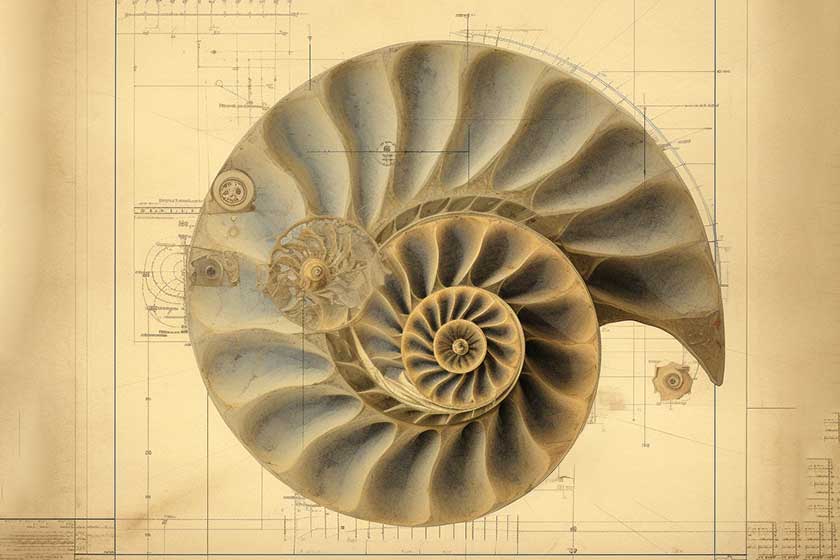Numerology: A Complete Guide to Understanding This Study
Understand Numerology, Different Methods, and the Meaning of Numbers
Published in: 21/06/2023 at 12:57
Updated in: 21/06/2023 at 14:28
light mode
9 minutes of reading
Want to know how this information can affect your life?
Numerology is a study that promotes self-knowledge through numbers. It considers the "energetic vibration" of numbers, attributing meanings and properties to them that are interpreted via archetypal knowledge, connecting a person's name and date of birth with their inner traits, behaviors, personality, and ways of acting in the world.
For millennia (well before Christ), numerology has been the subject of research and investigation by gurus, mystics, philosophers, and renowned mathematicians and metaphysical scientists.
If you’re interested in this topic, keep reading to discover the origins of numerology, how it works, what it brings to self-understanding, and much more!
What Is the Origin of Numerology?
The origin of numerology is uncertain, we don’t know exactly who invented it. Primitive peoples, for example, were the first to use numbers for counting and interpreting signs, even though they did not leave records that systematized this practice.
After them, we know that the Sumerians used numbers to quantify time. In any case, it was the Babylonians who were the first to document studies on numbers.
It can be said that much of metaphysical science arose from numerology, since numbers were studied archetypically, they helped quantify things, define symbols and drawings, and, in some way, provided meaning to what cannot be touched.
Modern numerology began with the ancient Greek civilizations in the 4th century BC. These peoples believed that the basic elements of tone, idea, and thought were grounded in mathematics and thus possessed their own vibrations.

What Are the Different Types of Numerology?
You’ve probably heard of the name numerology, birth date numerology, and business numerology. These are applications of numerological studies, but there are also other methods derived from the study of numbers, each with their own approaches and calculation systems. See some of the main ones below:
What Is Kabbalistic Numerology?
Kabbalistic numerology may be the oldest method, as it was born from Chaldean systems of study. However, some authors state that numerology has Egyptian origins. Thus, it is believed that Moses, having grown up in an Egyptian family, was an initiate and priest who brought this knowledge to the Hebrew people, inspired by divine guidance.
He studied the Names of God through the Tree of Life, decoding names through the Hebrew alphabet and Kabbalah. In this way, the original kabbalistic studies were associated with the ancient Hebrew table with centesimal values.
The modern kabbalistic table, as we know it today, was influenced over time and does not consider the number 9, as it is seen as a sacred number: anything added to it returns to its original value after theosophical reduction.
What Is Pythagorean Numerology?
It is believed that Pythagoras began his studies of numeric vibration of letters using this ancient system, perfecting it with his insights. His curious and investigative nature led him to study with great spiritual leaders from India, Arabia, Persia, Palestine, Phoenicia, Chaldea, Babylon, and Egypt.
His teachings were transmitted for centuries within secret groups, because orthodox and religious society did not allow access to this information.
The Pythagorean table may thus have been created within the Pythagorean School. Unlike kabbalistic numerology, it includes the number 9, which represents universal completeness.
Pythagoras described the vibrational attributes of numbers 1 to 9, associating them with the letters of the alphabet and revealing their mystical values, observing that numbers macrocosmically represented universal principles, and on a personal, microcosmic level, characteristics, abilities, and events.
He saw in numbers the explanation for all natural events, geometric patterns and proportions, the harmony of music, and the qualities of tone. Pythagoras knew that stars and planets produced sounds as vibrating bodies and was the first to study this phenomenon known as the “music of the spheres.”
What Is Quantum Numerology?
The term “quantum” is quite recent, just over 100 years old. The first physicist to identify the smallest quantity of matter then known was Max Planck, who coined the term "quantum." He sought to understand what happened in the smallest possible particle to grasp the nature of matter as a whole.
Later, Niels Bohr proved the discontinuous movement of electrons through the famous double-slit experiment, he called this phenomenon a quantum leap.
Thus, the term Quantum Physics emerged, referring to a branch of physics that studies the "inexplicable" phenomena of matter, then little understood by classical physics, focusing on the behavior of subatomic particles and the laws operating in the quantum realm.
The double-slit experiment was the turning point for quantum physics, challenging classical notions of cause and effect and revealing that subatomic particles can exist in multiple states simultaneously and relate non-locally, regardless of the distance between them.

Therefore, while Numerology as a tool is ancient, quantum numerology is a more recent approach to this tool. Through it, I aim to combine the concepts of traditional numerology with quantum physics.
I write in the first person because Quantum Numerology is a proprietary, registered, and patented method developed by me, integrating different numerological traditions and other techniques.
I chose this name out of my own need for change: I was already studying quantum physics and felt drawn to unite numerology with the quantum world, seeking out new alternatives and blending everything to bring understanding and transformation to people.
When I began studying numerology, I encountered many schools of thought. In this text, we cover the main ones, but there are also tantric, gypsy, karmic numerology, among others, each offering different views of the same tool that is numerology.
Studying these various approaches, I felt called to compile them, as I disagreed with the orthodox idea that kabbalistic numerology is more correct than pythagorean or vice versa. I then combined studies, taking the best from pythagorean, kabbalistic, and karmic numerologies and merging them with other quantum tools and techniques.
That’s how I arrived at the quantum numerology method, tested it, validated it, and later registered it.
The goal of this new approach is to explore the interconnection between numbers and the fundamental nature of the universe, as understood by quantum physics.
From my studies, I understand that numbers are not just abstract symbols. They are much more than a way to quantify things: they are archetypes, living and energetic entities reflecting quantum laws and principles.
Each number holds information and energies that can both influence and be influenced by the forces present in the Universe. There is no such thing as randomness or coincidence; everything is interconnected. Their vibrational patterns show our physical, mental, and spiritual reality.
Through the calculations of the numerology chart, in the line of thinking I developed, I compiled different calculations and studies to reach 36 layers of the numerology chart, which allow numbers to be explored and their vibrational patterns analyzed to deeply look into human existence and the individual, recognizing potential, gifts, talents, life purpose, and mission, as well as personality and ways of being in the world.
Moreover, through studies of morphogenic fields, we can emphasize that in some way we are all connected and exchanging information. Our thoughts and actions influence ourselves but also the environment around us, and the purpose of quantum numerology is to bring more awareness to these individual behavioral patterns, offering practical insights to help people elevate their energetic patterns and manifest a more harmonious reality, thus contributing to a better world.
Is Numerology a Science?
At this point, it’s important to clarify that numerology is considered a pseudoscience. For a method to be regarded as scientific, experiments must be repeatable in a lab, consistently yielding the same results for it to be considered a science.
However, we know that self-knowledge tools do not work this way, since individuals are unique. For this reason, people with the same numbers do not always respond in the same way: it all depends on their personal experiences, which can change throughout life.
The purpose of a numerology chart is to bring the individual closer to their primal essence, revealing who they truly are before the world tells them who they should be.
The Meaning of Numbers in Numerology
Now that you understand a bit about what numerology is, its different methods and origins, it’s time to discover a little about the meaning of each number. It’s important to remember that these are just brief interpretations. A more complete and accurate analysis of a number in numerology requires considering its context and other influences present in a person’s numerology chart.
Number 1
Represents leadership, originality, and individuality. It is linked to confident, creative, and determined people. Indicates the ability to take initiative and lead.
Learn more about the meaning of number 1
Number 2
Relates to harmony, cooperation, and diplomacy. Indicates collaborative abilities, empathy, and balance. People with this number are generally gentle, sensitive, and peace-seeking.
Learn more about the meaning of number 2
Number 3
Symbolizes creative expression, communication, and sociability. Stands for communicative, optimistic, and expressive individuals. Indicates artistic talent, clear communication skills, and an outgoing personality.
Learn more about the meaning of number 3
Number 4
Is associated with stability, organization, and hard work. Represents practical, reliable, and responsible people. Indicates a systematic approach to life, attention to detail, and a sense of duty.
Learn more about the meaning of number 4
Number 5
Is linked to freedom, adventure, and adaptability. Represents versatile, curious, and restless people. Indicates a search for exciting experiences, adaptability to change, and an inquisitive nature.
Learn more about the meaning of number 5
Number 6
Symbolizes family harmony, responsibility, and love. Represents compassionate, dedicated, and loving individuals. Indicates skills for caring for others, a sense of responsibility, and a desire to build healthy relationships.
Learn more about the meaning of number 6
Number 7
Is associated with knowledge, spirituality, and introspection. Represents intuitive, wise, and investigative people. Indicates a deep search for answers, interest in spiritual topics, and an analytical mind.
Learn more about the meaning of number 7
Number 8
Symbolizes power, success, and ambition. Represents determined, practical, and materially oriented people. Indicates abilities in dealing with finances, leadership, and ambition.
Learn more about the meaning of number 8
Number 9
Is related to compassion, altruism, and wisdom. Stands for generous, intuitive, and idealistic people. Indicates concern for the well-being of others, capacity for forgiveness, and a quest for deeper meaning in life.
Learn more about the meaning of number 9
Number 11
Known as a "master number" in numerology, it represents intuition, spirituality, and enlightenment. People with number 11 are highly intuitive, sensitive, and deeply connected to the spiritual realm. They usually have great potential for creativity, inspiration, and spiritual leadership. However, they may also face challenges in balancing their sensitivity and achieving emotional stability.
Learn more about the meaning of number 11
Number 22
Like number 11, number 22 is considered a "master number" in numerology. It signifies construction, achievement, and manifesting power. People with number 22 have exceptional abilities to realize their dreams and goals in the physical world. They are visionary, practical, and possess an entrepreneurial mindset. Number 22 is also associated with wisdom and a strong sense of higher purpose. However, it can also be challenging as it requires a balanced integration of practical and spiritual aspects of life.
Learn more about the meaning of number 22
If you enjoyed this content, I invite you to explore other numerology articles in the Astrolink article section. Happy studying!
